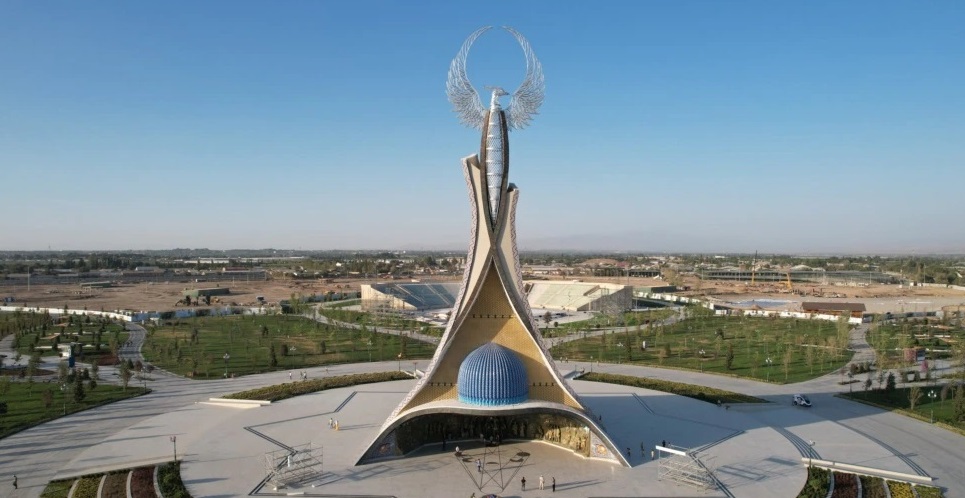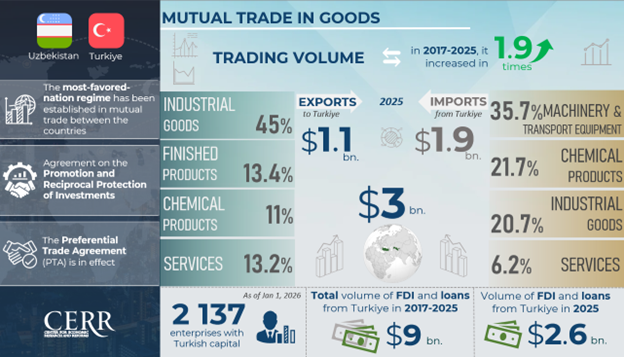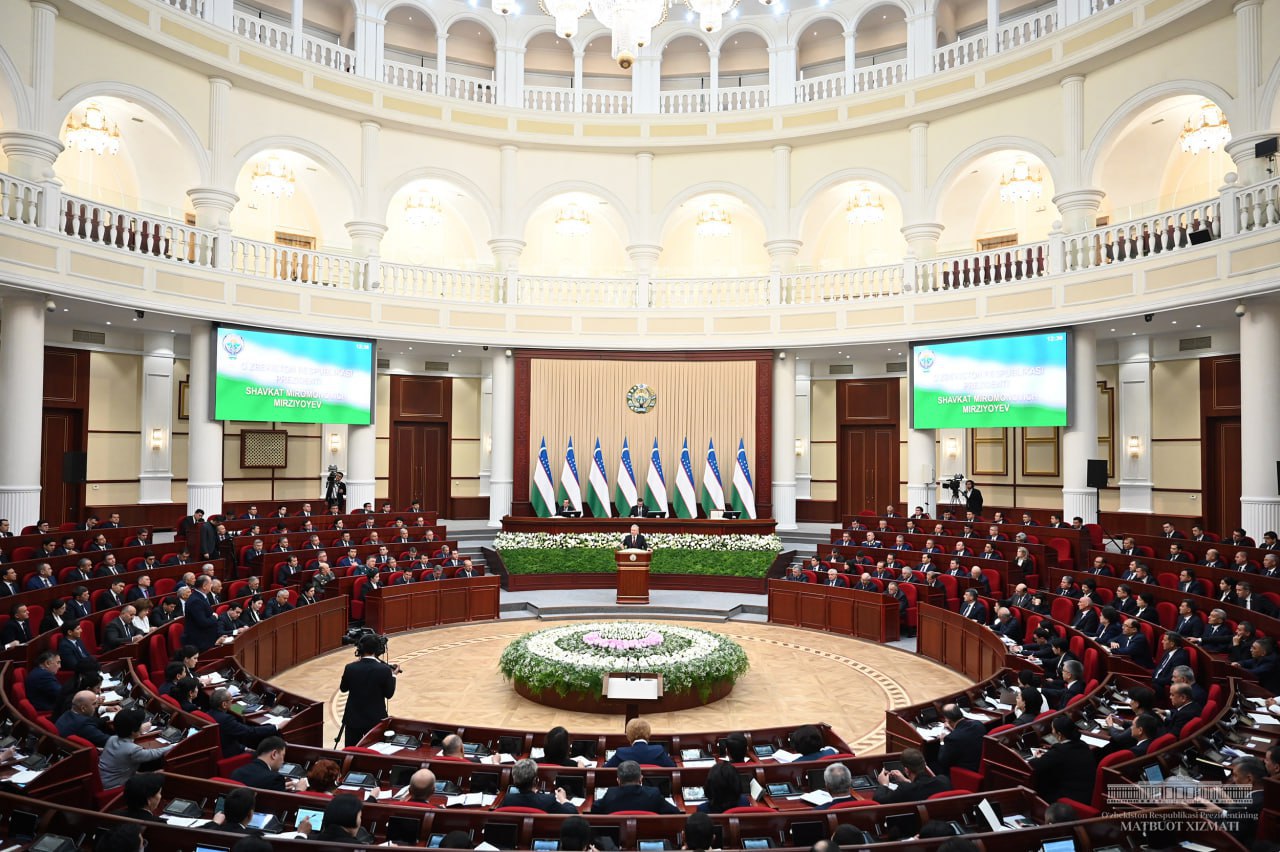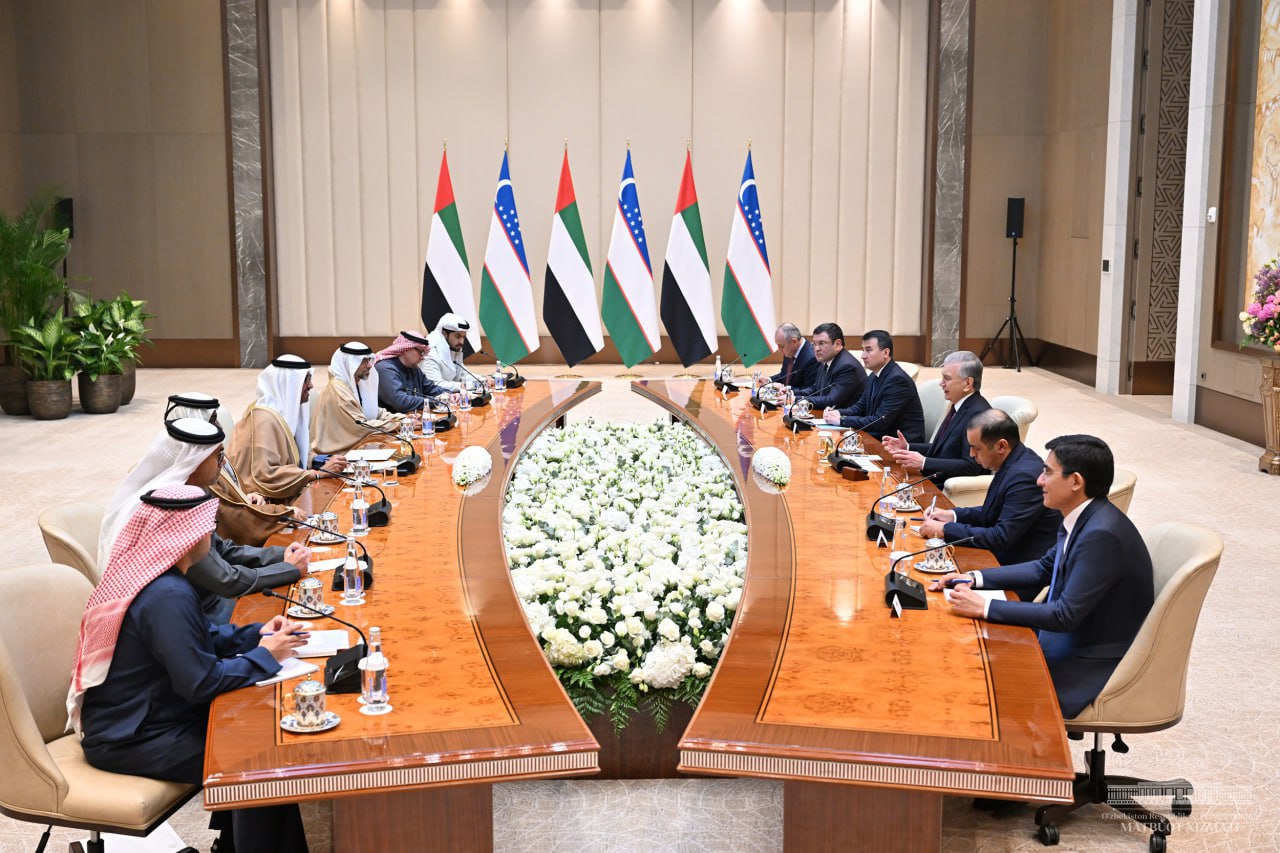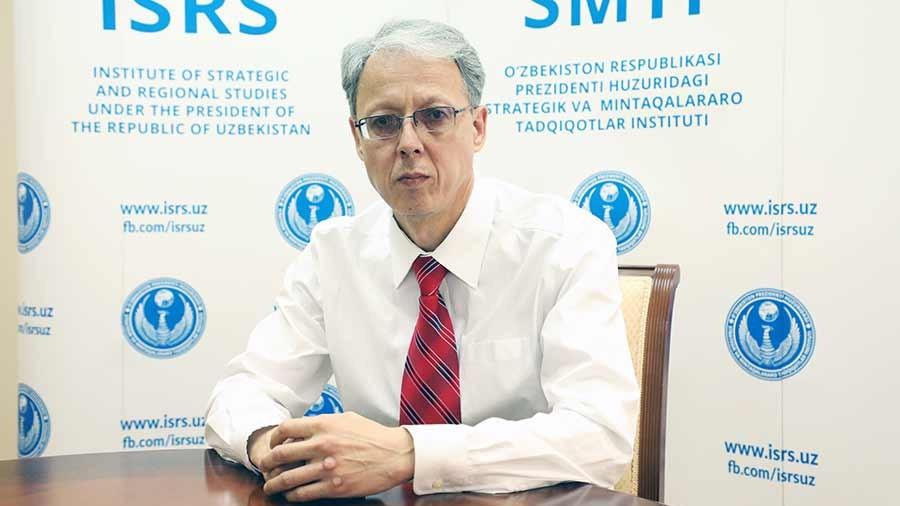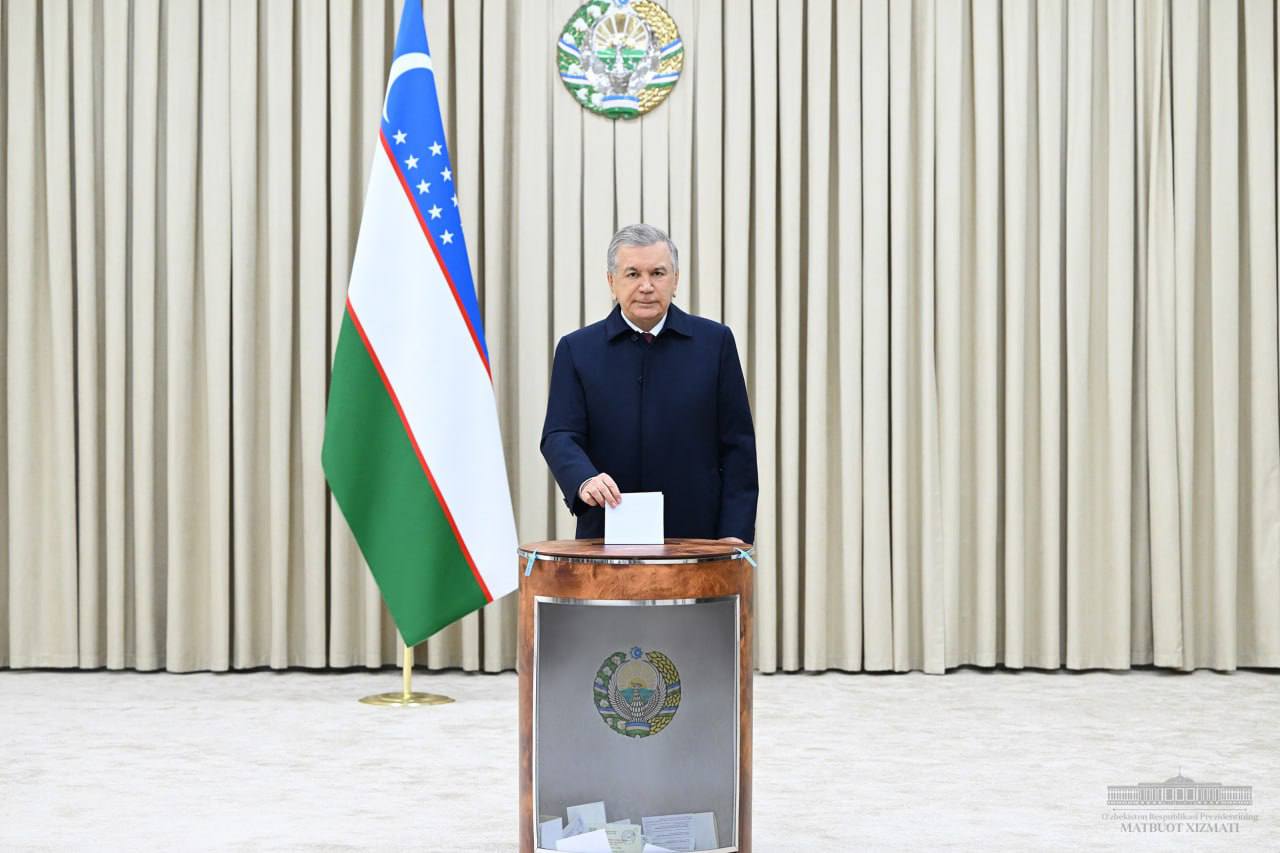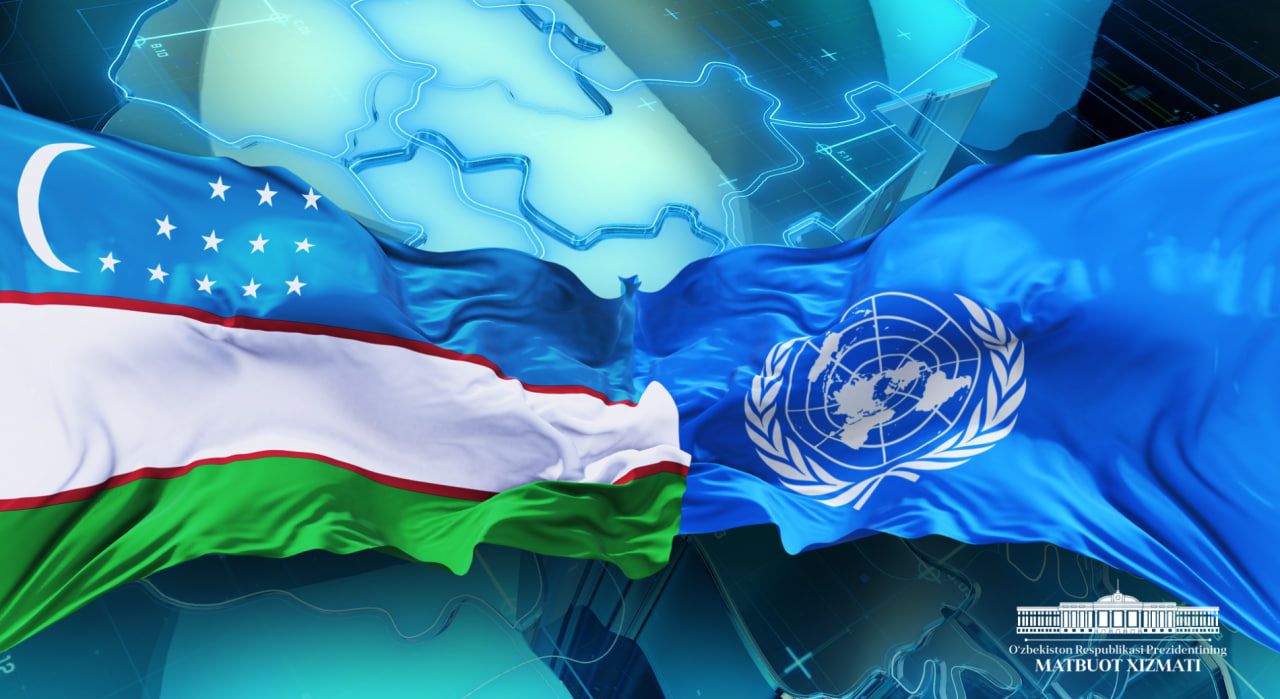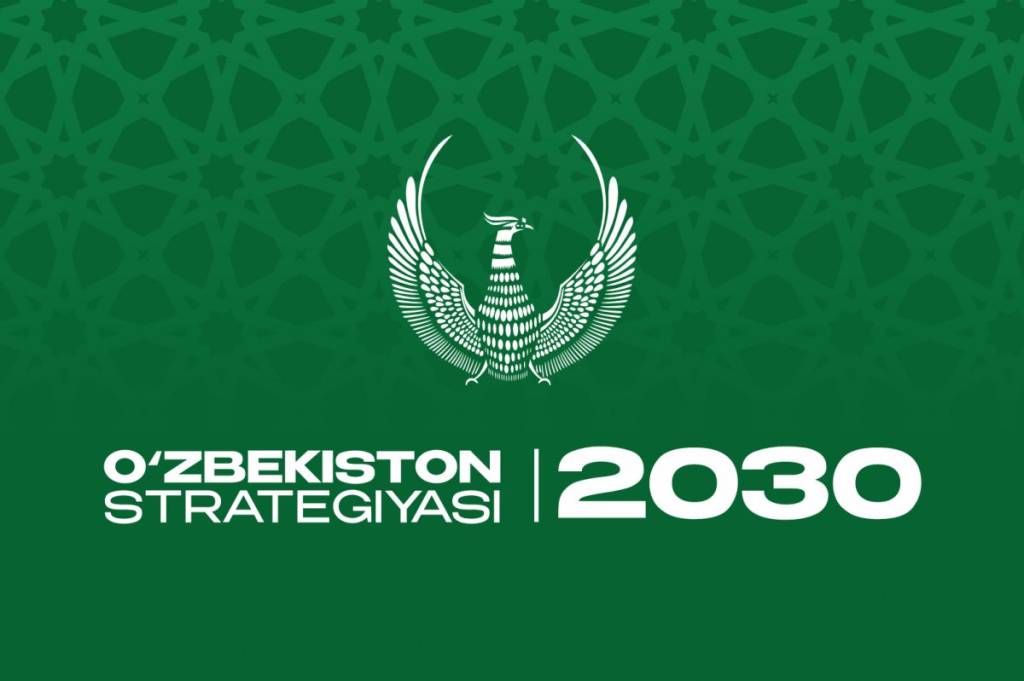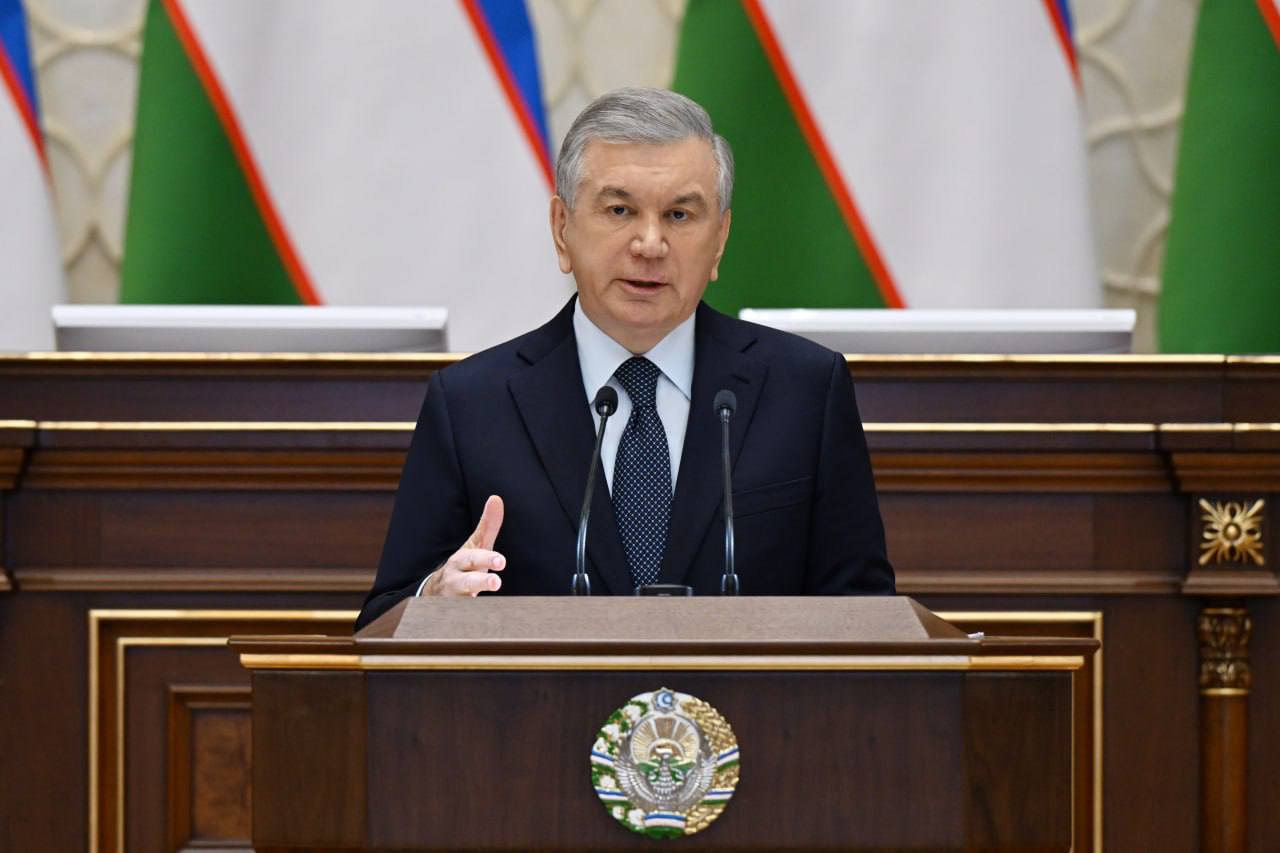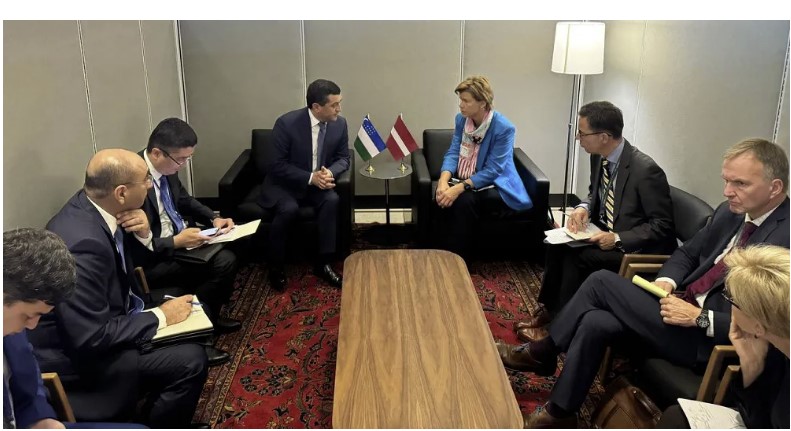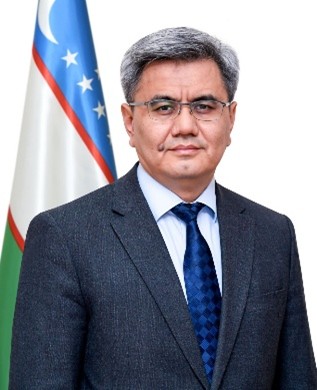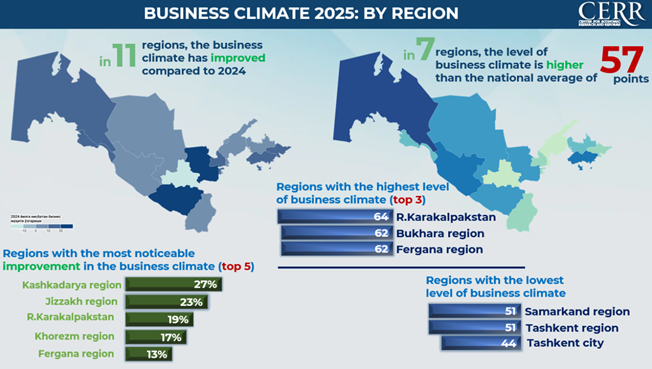Phone
Consular Issues
Phone
Uzbekistan news
We recommend
New powers of the new Parliament of Uzbekistan
📅 28.08.2024The text of the article is in Uzbek!
Uzbekistan–Turkiye: From Trade to Expanded Economic Engagement
📅 29.01.2026
Economic cooperation between Uzbekistan and Turkiye is carried out within the framework of signed bilateral agreements and established intergovernmental mechanisms, and is supported by regular high-level contacts. In addition, Uzbekistan and Turkiye cooperate within the framework of the Organization of Turkic States.
In 2023, the President of the Republic of Turkiye paid an official visit to Uzbekistan, during which the Uzbekistan–Turkiye Business Forum was held. As a result of the visit, a substantial package of intergovernmental and commercial agreements was signed, covering key sectors of the economy with a total value of around $10 bn.
In June 2024, the President of the Republic of Uzbekistan paid an official visit to Turkiye. During the visit, a meeting of the High-Level Strategic Cooperation Council was held, resulting in the signing of an important package of agreements, protocols, and roadmaps aimed at further expanding trade, economic, and investment cooperation.
Mutual trade between Uzbekistan and Turkiye operates under a most-favoured-nation regime, and a Preferential Trade Agreement has also been signed.
Turkiye is among Uzbekistan’s leading trade and economic partners, ranking 4th in terms of total trade turnover and imports, and 5th in terms of Uzbekistan’s exports.
In 2025, Turkiye’s share in Uzbekistan’s foreign trade turnover amounted to 3.7%, including 3.4% of exports and 4.0% of imports.
Dynamics of Bilateral Trade
Over the period 2017–2025, bilateral trade between the two countries increased by 1.9 times and reached $3.0 bn by the end of 2025. Exports to Turkiye grew by 1.3 times to $1.1 bn, while imports from Turkiye increased by 2.8 times to $1.9 bn.
At the same time, annual growth rates of imports from Turkiye consistently exceeded export growth rates, resulting in a widening trade deficit to –$751.6 mn.
Uzbekistan’s exports to Turkiye in 2025 comprised the following categories: industrial goods (copper products, yarn, etc.) amounting to $511.4 mn (45%); miscellaneous manufactured articles (mainly precious metal products) at $152.3 mn (13.4%); chemical products (polymers, fertilizers, etc.) at $124.3 mn (11%); machinery and transport equipment at $80.1 mn (7%); food products (dried fruits and nuts) at $63.0 mn (5.5%); petroleum products (gasoline, gas oil) at $36.6 mn (3.2%); non-food raw materials at $18.0 mn (1.6%); as well as services, primarily transport services, at $149.9 mn (13.2%).
Imports from Turkiye in 2025 were dominated by the following categories: machinery and transport equipment at $674.6 mn (35.7%); chemical products at $408.9 mn (21.7%); industrial goods at $390.2 mn (20.7%); miscellaneous manufactured articles at $136.2 mn (7.2%); food products at $94.6 mn (5.0%); petroleum products (lubricating oils) at $30.2 mn (1.6%); non-food raw materials at $30.1 mn (1.6%); and services at $117.4 mn (6.2%).
Investment Cooperation
The two countries have signed an Agreement on the Promotion and Reciprocal Protection of Investments. As of 1 January 2026, 2,137 enterprises with Turkish capital operate in Uzbekistan, accounting for 11.8% of all active enterprises with foreign investment. Of these, 496 are joint ventures and 1,641 are wholly owned by Turkish investors.
Total direct investments and loans from Turkiye to Uzbekistan’s economy over 2017–2025 amounted to $9.0 bn, including $2.6 bn attracted in 2025 alone.
Turkish capital continues to expand its presence in Uzbekistan, primarily in priority sectors such as energy, manufacturing, agriculture, and construction.
In particular, investments in the power sector are linked to the construction by the Turkish company Cengiz Enerji of a 240 MW thermal power plant in Tashkent Region and a similar 220 MW plant in Syrdarya Region.
Prospective Areas of Economic Cooperation
An analysis of Turkiye’s import structure indicates opportunities to increase Uzbekistan’s exports to Turkiye, particularly in product categories that Uzbekistan already supplies to global markets. These include polymers (Turkiye’s imports amounting to $2.8 bn), copper wire ($1.4 bn), fertilizers ($1.1 bn), legumes ($1.0 bn), zinc ($857 mn), copper tubes ($360 mn), textile products, particularly T-shirts and undershirts ($373 mn), knitted fabrics ($158 mn) and other manufactured goods.
Promising areas for cooperative engagement between Uzbekistan and Turkiye include manufacturing industries – especially textiles, electrical engineering, and machinery – chemical industry, agriculture, healthcare, education, as well as projects aimed at preserving and promoting cultural heritage. There are also prospects for joint infrastructure projects, including the construction of water treatment facilities.
In agriculture, particular attention is paid to the selection and cultivation of domestic pistachio varieties and the development of pistachio farming. Agreements have been reached on implementing joint research projects focused on cultivation techniques and adaptation.
A significant emphasis is placed on expanding cooperation in education, including the involvement of Turkish lecturers and specialized professionals in educational initiatives in Uzbekistan, experience exchange, and human capital development.
At the same time, areas of cooperation in healthcare are being discussed, focusing on the development of primary healthcare, the introduction of medical insurance systems, sector digitalization, improvement of service quality, and modernization of the pharmaceutical industry.
Tourism has been identified as a separate and promising area of cooperation. Currently, 12 hotels in Uzbekistan operate with the participation of Turkish partners, along with more than 100 joint restaurants, reflecting sustained interest by Turkish businesses in the country’s tourism sector.
In 2025–2026, with the support of Turkish investors, 11 hotel projects with a total value of $167.9 mn are planned in Bukhara, Samarkand, Jizzakh, Fergana, and Tashkent regions.
Transport connectivity is also expanding significantly. The number of weekly flights between Uzbekistan and Turkiye has increased from 62 in 2023 to 106 at present, creating additional conditions for the growth of mutual tourist flows and the expansion of travel routes.
A key initiative in tourism is the “Million + Million” programme, aimed at attracting at least one million tourists to each country. The programme envisages a further increase in flight frequency and the expansion of tourist routes between Uzbekistan and Turkiye.
Conclusion
In recent years, there has been steady growth in bilateral trade, investment volumes, the number of enterprises with Turkish capital, and the breadth of economic cooperation.
At the same time, Uzbekistan’s exports to Turkiye are still dominated by raw materials and intermediate goods used in Turkiye’s industrial sectors. Against this background, the key task for the coming years is to move from a “raw materials–finished goods” trade model toward the formation of joint production chains with higher value added.
In this context, Turkiye can play a role for Uzbekistan not only as one of its principal trading partners, but also as a contributor to Uzbekistan’s industrial development and to the expansion of its participation in global value chains.
Edvard Romanov
Center for Economic Research and Reforms
President participates in the session of the Legislative Chamber
📅 19.11.2024
On November 18, the first session of the Legislative Chamber of the Oliy Majlis of the Republic of Uzbekistan after the elections was held in Tashkent.
It was attended by President of the Republic of Uzbekistan Shavkat Mirziyoyev.
The session was opened by Chairman of the Central Election Commission Zayniddin Nizamkhodzhaev.
The National Anthem of the Republic of Uzbekistan was played.
Temporary Secretariat of the first session, Counting Commission and temporary group on control over the use of electronic vote counting system were elected. The agenda was approved. The CEC Chairman presented information on the results of the elections to the Legislative Chamber.
On the proposal of the Council of Representatives of Political Parties, deputies elected Nuriddin Ismoilov to the post of Speaker of the Legislative Chamber of Oliy Majlis by secret ballot.
Then the chairmanship of the session passed to the Speaker. Deputy Speakers were elected. The factions of five political parties were registered. Ten committees of the Legislative Chamber were established in accordance with their agreed proposals.
President of Uzbekistan Shavkat Mirziyoyev addressed the session.
At the beginning of his speech, the Head of State congratulated the deputies on their election, emphasizing that this is the embodiment of high trust and respect of our people.
It was emphasized that the current parliamentary elections have entered the history as being the first ones held in accordance with the updated Constitution. This process was conducted for the first time under a mixed electoral system.
As a result of the elections, 150 deputies were elected to the Legislative Chamber. Among them were 57 women and 11 young people under 35 years of age. Overall, the composition of the lower house was renewed by almost 60 percent.
The activities of the Chamber over the past five years were discussed. During this period, the Constitution has been updated and more than 130 new laws have been adopted, which is 1.5 times more than in the previous period.
The President also drew attention to the issues that remained out of parliamentary attention. For example, the share of laws with direct action and clear enforcement mechanisms remains low. Parliamentary and deputy control is still not effective enough. The activity of deputies in constituencies is mostly limited to organizing meetings, answering complaints and questions.
The Head of State outlined his vision of the new tasks ahead of the Legislative Chamber.
In particular, it was proposed to create public councils under each committee with the participation of representatives of civil society to strengthen the dialogue.
It is important to establish not only control and requirements in the work of parliamentary committees, but also close cooperation with ministries. It is also necessary to strengthen party and fractional discipline.
The President emphasized that lawmaking, primarily, should be aimed at solving urgent problems of society, and put forward a number of legislative initiatives. Among them are the construction of modern residential buildings replacing outdated ones, guaranteeing the protection of citizens' funds allocated for housing construction, support for private education and investors in the energy sector, introduction of compulsory health insurance, creation of a legal framework for franchising, capital market and startups, and relations arising in the field of artificial intelligence.
In order to boost the opposition, it was proposed to increase the number of guaranteed rights of the parliamentary opposition from 3 to 6, including giving it the positions of one committee chairman and two deputy committee chairmen, as well as additional rights to submit questions within the framework of the “government hour” and parliamentary inquiries.
Particular attention was paid to the need to transition to a system of broad, high-quality parliamentary control. In particular, in accordance with the updated Constitution, the control over the execution of the State Budget is the exclusive competence of the Legislative Chamber. In this regard, it is necessary to strengthen the work of the Chamber in this direction, including the introduction of the practice of submitting all reports of the Government on the State Budget to the Chamber only together with the audit report provided for by the Budget Code.
- A deputy is a servant of the people, a model for all, a person with a high level of political culture and knowledge, who sincerely loves his homeland. Our people, all of us, above all rely on you to strengthen peace, mutual understanding and harmony in the family, mahalla and society, to educate the youth in the spirit of patriotism, to defend the interests of Uzbekistan in the international arena, - said Shavkat Mirziyoyev.
Heads of political party factions and deputies addressed the session. The President supported their views, urged the deputies to work harder and be closer to the people.
- The voice of a deputy is the voice of the people. If you consider every issue concerning the fate of the country and first of all see our hardworking, generous and noble people in front of you, if you act thinking not only about today, but also about peace and happiness of future generations, then our people will be satisfied with you, - emphasized the Head of State.
The Legislative Chamber of the Oliy Majlis adopted resolutions on the agenda.
President of Uzbekistan points to the need of enriching partnership with the UAE
📅 16.12.2024
The issues of further expansion of practical interaction and promotion of investment cooperation projects were discussed at the meeting between President of the Republic of Uzbekistan Shavkat Mirziyoyev and the delegation of the United Arab Emirates comprising Minister of Industry and Advanced Technologies Sultan Ahmed Al Jaber and Minister of Energy and Infrastructure Suhail Mohammed Al Mazroui.
At the beginning of the conversation, Sultan Al Jaber conveyed to the Head of our State sincere greetings and best wishes from the President of the Emirates Sheikh Mohamed Al Nahyan, Prime Minister of the country, Emir of Dubai Sheikh Mohammed Al Maktoum and Vice President Sheikh Mansour Al Nahyan.
In the course of the meeting, the current highest level of Uzbek-Emirati multifaceted relations was noted with special satisfaction. The volumes of mutual trade turnover, the number of joint ventures and the frequency of flights are growing. The portfolio of ongoing and promising projects with the participation of leading Emirati companies in Uzbekistan reaches $20 billion.
Green energy is the driving force behind bilateral cooperation. Today, a 500 megawatt wind farm was commissioned in Navoi region, a project implemented by Masdar.
In general, in recent years with the participation of this company power generation facilities with total capacity of 1.5 gigawatts have been commissioned in our country.
Particular attention was paid to the early preparation and implementation of major investment projects in the energy, oil and gas and chemical industries, mining, water supply, household waste processing and other fields.
The importance of continuing productive contacts at all levels and careful preparation for the upcoming high-level events was noted.
Uzbekistan and Finland: Similar Approaches to Building Good-Neighborly Regional Relations
📅 06.11.2025
In an era characterized by growing disunity among global powers, the strategies employed by so-called “middle” states in forging stable regional relations present promising solutions for achieving international peace and cooperation. Uzbekistan, a Central Asian nation situated at the heart of the historic Silk Road, and Finland, a Nordic state with a unique experience as a neutral border state during the Cold War, exemplify how a consistent commitment to dialogue can contribute to regional stability amidst the complexities of global relations.
Geographically separated, these countries have developed strikingly similar approaches to ensuring sustainable development, peace, and stability in their regions. They address key regional security challenges by strengthening multifaceted and mutually beneficial good-neighborly relations with their neighbors. Additionally, they engage in multilateral, long-term partnerships with interested countries and organizations.
While Uzbekistan and Finland have been shaped by different historical contexts, these experiences have contributed to the development of a shared diplomatic philosophy centered around stability, cooperation, sovereign equality, mutual respect, and multilateral interaction.
Central Asia, a region steeped in ancient history, has long been a cultural and historical hub. Centuries ago, it was a unified space where politics, economics, and culture intertwined seamlessly. As one of the cradles of human civilization, Central Asia boasts a rich tapestry of history and a vibrant cultural heritage that has shaped universal values. These values emphasize cooperation over confrontation, tolerance over imposition, and the belief that the well-being of neighbors is intrinsically linked to one’s own.
Since gaining independence in 1991, Uzbekistan has consistently championed a policy of regional interaction. This policy, which gained prominence under President Shavkat Mirziyoyev in 2016, became a cornerstone of Uzbekistan’s foreign policy. Tashkent’s “diplomatic offensive” to enhance intra-regional cooperation became one of the most significant policy changes that transformed relations in modern Central Asia.
Tashkent’s unprecedented focus on dialogue and building trust with neighboring states has transformed Uzbekistan into the primary organizer of cooperation in the region. It has advocated for the development of multilateral interaction mechanisms, spanning various domains such as water resource management, transport corridor expansion, industrial cooperation, border demarcation, and regional security.
The positive impact of these policy changes has reverberated throughout the entire region. After 2016, economic cooperation witnessed a remarkable surge, leading to a nearly doubling of the total GDP of Central Asian states from $273 billion to $520 billion. Trust and strengthened ties between countries have facilitated a 4.5-fold increase in intra-regional trade, soaring from $2.4 billion to $11 billion. Moreover, the number of tourists visiting the region has doubled, further boosting its appeal.
The collective openness and enhanced stability have become attractive factors for third countries, resulting in a significant increase in the region’s foreign trade. This growth has seen a remarkable rise of over 200 percent, from $112 billion to $253 billion.
Finland’s diplomatic traditions were shaped by its unique position at the crossroads of Eastern and Western “spheres of influence.” Its vulnerable geographical location drove its pursuit of interaction and stability.
Finland consistently advocates for strengthening friendly relations with all countries, particularly its neighbors, and fostering ties within Nordic cooperation structures like the Nordic Council, the Council of Ministers of the Nordic Countries, and the Nordic Investment Bank.
This approach is reflected in Finland’s active involvement in the OSCE with aims to enhance dialogue and trust.
Finland’s 2025 OSCE chairmanship, coinciding with the 50th anniversary of the Helsinki Final Act, holds symbolic significance. It exemplifies Finland’s commitment to building bridges, fostering dialogue, and cultivating trust, aligning with its dialogue-based foreign policy. Finnish diplomacy consistently emphasizes the importance of strengthening common positions and approaches among states, reflecting Finland’s consensus-oriented diplomatic style, which Uzbekistan shares as well.
It’s worth noting that both countries adhere to the same fundamental principles of international law. Respect for national sovereignty, non-interference in internal affairs, and the inviolability of borders serve as practical guidelines shaping Uzbekistan and Finland’s foreign policy, regional behavior, and international positioning.
Tashkent’s approaches to regional interaction resonate with Helsinki’s priorities for cooperation with the Nordic and Baltic countries. Uzbekistan’s efforts in resolving border disputes and collaborating on water resources in the region mirror Finland’s approach to peacebuilding and fostering cooperation.
Furthermore, both countries have established themselves as advocates of results-oriented cooperation. They are pragmatic architects of projects that create mutual benefits and strengthen regional stability and interregional connectivity.
Under the leadership of President Sh. Mirziyoyev, Uzbekistan is actively promoting the development of transport infrastructure within Central Asia and with neighboring regions, including the West, East, and South. For instance, the development of the “Middle Corridor” (Trans-Caspian International Transport Route) has led to a remarkable six-fold increase in cargo shipments along it over four years, from 2020 to 2024, reaching a substantial volume of 4.5 million tons. Tashkent is also actively involved in the construction of the China-Kyrgyzstan-Uzbekistan railway and is promoting connectivity between Central and South Asia.
Economic cooperation and environmental protection are additional pillars of Uzbekistan’s regional strategy. These aspects play a crucial role in Uzbekistan’s environmental programs, particularly in mitigating the consequences of the Aral Sea disaster.
Finland, following a similar pattern of project-oriented cooperation, has been an active participant in initiatives of the Nordic Council and the Barents Euro-Arctic Council. These initiatives encompass cross-border cooperation in environmental protection, innovation, and people-to-people contacts. Finland also promotes initiatives of the Trans-European Transport Network and Arctic connectivity.
Known for its leadership in environmental protection, Finland actively participates in cross-border economic projects with partners from the Nordic and Baltic countries.
Alongside their close cooperation with countries in their respective regions, Uzbekistan and Finland pursue a policy of strategic multilateralism. Both countries actively participate in various regional and global institutions, reflecting their shared views that modern challenges require collective responses. They believe that “middle powers” can exert effective influence through institutional engagement.
Since 2016, Uzbekistan has significantly increased its involvement in regional organizations, primarily the Shanghai Cooperation Organization (SCO), the Organization of Turkic States (OTS), and various United Nations bodies.
Additionally, the “Central Asia +” (C5+1) platform, now comprising over 10 partner countries and organizations, actively promotes interregional cooperation. Notably, the inaugural “Central Asia – European Union” summit held in April 2025 resulted in an agreement on “deep and comprehensive cooperation” between the two regions.
Finland’s international engagement, while having a longer history, also follows a similar pattern of active institutional participation. As a member of the European Union since 1995 and multiple international organizations, Finland maintains its traditional interactions with regional structures in Northern and Baltic Europe.
As the international landscape becomes increasingly intricate, Uzbekistan and Finland encounter similar challenges that test their historically established unique diplomatic approaches.
Uzbekistan faces the primary challenge of sustaining the momentum for deepening regional partnership and intensifying cooperation with external actors amidst escalating geopolitical tensions, environmental threats, and economic shocks.
From Uzbekistan’s perspective, responding to the changing geopolitical landscape and the economic transformation needs of Central Asia requires strengthened cooperation, both among Central Asian countries and between regions.
Finland’s challenge lies in finding a balance between its commitments within the EU and NATO and its traditional role as a mediator in building consensus and dialogue, particularly in organizations like the OSCE, where it continues to promote “strengthening dialogue and trust.”
Overall, Uzbekistan and Finland exemplify successful regional cooperation based on a consistent commitment to dialogue and interaction. Despite their distinct geographical and historical contexts, both countries have adopted similar foreign policy approaches focused on conflict prevention, institutional engagement, and pragmatic regionalism.
In an interconnected world characterized by great power rivalry, the diplomatic approaches of Uzbekistan and Finland serve as a reminder that sustainable security and prosperity are achieved through dialogue, cooperation, and practical collaboration, rather than diktat, isolation, or empty rhetoric.
And unsurprisingly, these foreign policy approaches positively impact the lives of their citizens. It’s not a coincidence that Finland consistently ranks as the “happiest country in the world” for the eighth consecutive year in the World Happiness Report. Similarly, Uzbekistan leads in the level of happiness among Central Asian countries in the same ranking.
Sharif Akhmedov,
Chief Researcher at the Institute for Strategic and Regional Studies under the President of the Republic of Uzbekistan
President Shavkat Mirziyoyev votes in elections
📅 27.10.2024
Today, elections to the Legislative Chamber of Oliy Majlis and kengashes of people's deputies are being held in our country.
President of the Republic of Uzbekistan Shavkat Mirziyoyev together with his family members visited polling station No. 59 in Mirzo-Ulugbek district of the capital and took part in the voting.
Article 128 of the Constitution of our country states that citizens have the right to elect and be elected to the representative bodies of state power. The right to vote, equality and freedom of expression are guaranteed by law.
Five parties are running in the elections: the Movement of Entrepreneurs and Business People - Liberal Democratic Party of Uzbekistan, the Milliy Tiklanish Democratic Party, the Ecological Party, the People's Democratic Party and the Adolat Social Democratic Party.
This important event is taking place in the context of increased social and political activity in our country, under the slogan “My Choice - Prosperous Motherland”.
For the first time in the history of Uzbekistan, elections to the Legislative Chamber of the Oliy Majlis are held on the basis of a majoritarian-proportional, that is, mixed electoral system. 75 deputies are elected directly under the majoritarian system, i.e. by voting for their preferred candidates, and the remaining 75 - under the proportional system, when votes are cast for political parties.
Over the past period, the electoral legislation has been radically improved in line with advanced democratic standards. In particular, a new system of electoral bodies headed by the Central Electoral Commission had been introduced, and, in order to enhance the role of women in society, it had been established that the proportion of women among political party candidates should be at least 40 per cent.
Another notable aspect of the current elections was that the interaction between the participants in the process had been fully digitalized through the E-Saylov information system.
This information system has raised the openness of the elections to a higher level.
All polling stations have created conditions for voters in accordance with the law. There are 5,770 district and 11,028 precinct election commissions organized in the field, including 57 polling stations in 40 foreign countries.
More than 850 foreign and international observers from the CIS, SCO, Organization of Turkic States, as well as a full-scale mission of the OSCE Office for Democratic Institutions and Human Rights are taking part in monitoring the election process.
The head of state talked to citizens who came to the polling station. He thanked them for their active participation in the elections with a sense of involvement in the fate of their native country and their district.
UN Secretary-General to visit Uzbekistan
📅 30.06.2024
At the invitation of President of the Republic of Uzbekistan Shavkat Mirziyoyev, United Nations Secretary-General António Guterres will pay an official visit to our country from June 30 to July 1.
The program of the high-ranking guest's stay in Tashkent envisages talks at the highest level.
The agenda includes issues of further expansion and strengthening of Uzbekistan's multifaceted cooperation with the UN and its institutions, as well as topical aspects of global policy and regional interaction. Special attention will be paid to supporting measures to achieve the Sustainable Development Goals in our country.
During the visit, the UN Secretary-General will also visit a number of industrial and social sites, hold bilateral meetings and events.
Translated with DeepL.com (free version)
“Uzbekistan – 2030” Strategy: Updates and refinement of target indicators
📅 28.01.2026
“Uzbekistan - 2030” strategy, adopted on 11 September 2023, identifies sustainable economic growth, the establishment of modern education, healthcare and social protection systems, creation of favorable environmental conditions, building a just and modern state and guaranteed national sovereignty and security as its priority areas. At the core of all reforms is the aim to increase citizens’ welfare, strengthen public trust in the state and ensure confidence in the future. The strategy represents a shift from goal-setting to results-based management, with clear accountability, measurable outcomes and linked financing.
Since its adoption, Uzbekistan has achieved significant progress. Between 2023 and 2025, nominal GDP rose from USD 107.5 billion to USD 140 billion, while exports, foreign investment and innovative activity also grew. Social indicators reflect the reforms’ impact: unemployment fell from 6.8% to 4.9% and poverty decreased from 11% to 6.8%.
What are the reasons for updating the “Uzbekistan - 2030” Strategy?
The need to accelerate the country’s further development has prompted the update of the strategy and its target indicators. The “Uzbekistan - 2030” Strategy has been revised in light of both external and internal factors.
External factors include the global geopolitical environment, international economic trends, technological innovations, environmental and natural changes and the growing demand for energy and water resources. Internal factors encompass demographic growth, urbanization and migration, which require strengthening institutional quality and improving governance efficiency.
In response to these challenges, a draft of the “Uzbekistan - 2030” Strategy for 2026-2030 has been developed and published for nationwide public discussion.
Within the updated Strategy, while retaining the same five priorities and 100 goals, certain tasks and performance indicators have been revised. Many of the previously established targets have already been achieved and new objectives have been added, resulting in an expanded and updated set of performance indicators. Moreover, the document specifies the responsible ministries and agencies as well as the concrete funding sources required to achieve each goal.
In which areas do the reforms provide “mechanisms for change”?
Economy. The largest number of tasks and performance indicators fall under “II. Ensuring the well-being of the population through sustainable economic growth.” The Strategy sets a target GDP of USD 240 billion by 2030 through measures such as maintaining annual inflation at 5–6%, ensuring fiscal stability, enhancing the country’s investment attractiveness, efficiently utilizing domestic raw materials and developing high-tech-based industry and services. The plan also emphasizes deepening Uzbekistan’s integration into global transport and logistics networks and strengthening the export potential of the national economy.
Transitioning to a green economy, transforming the country into a regional “IT HUB” through digital technology development, increasing competition in the banking sector, creating the most favorable conditions for entrepreneurial activity and implementing comprehensive regional development will generate new jobs, ensure employment and increase citizens’ incomes. These measures are expected to reduce poverty, enhance overall well-being and stimulate the growth of key economic sectors, particularly construction, tourism and the service industry.
Education. The Strategy also aims to create favorable conditions for realizing the potential of the youth as well as developing the education and healthcare sectors. Under “I. Creating dignified conditions for the realization of each person’s potential,” performance indicators have been established to achieve goals by 2030, such as ensuring that 50% of graduates from general education schools and academic lyceums receive higher education and secure employment in sectors offering fair wages. Additionally, the inclusion of 10 higher education institutions in the global top-1000 rankings (QS, THE, ARWU) will enhance the competitiveness of Uzbek youth not only in domestic labor markets but also internationally.
The implementation of a cluster system “enterprise – university – research organization” will contribute to the expansion of innovative products in the economy’s “driver” sectors. The Strategy envisions the creation of spin-off type production clusters at higher education institutions to accelerate the process of integrating scientists’ research ideas into economic practice in areas such as transport and logistics, agricultural production, energy, biotechnology, geology and metalworking, mechanical engineering and electronics. Developing science, especially among youth, will improve Uzbekistan’s position in the Global Innovation Index and enable the country to enter the list of the top 60 most innovative nations worldwide.
Health. It is often said that a person’s education reduces health risks and increases life expectancy, while health - physical, mental and social - is the foundation for a full life and self-realization. The Strategy sets goals for the next five years to increase the average life expectancy of the population, reduce premature mortality from cardiovascular diseases (ages 30–69), cancer and respiratory diseases and decrease the incidence of life-threatening congenital defects in newborns. In maternal and child healthcare, nine performance indicators have been established. The Strategy also prioritizes promoting healthy nutrition and lifestyles among the population and reducing adult obesity rates.
Social Protection. For vulnerable segments of the population, the state will continue its policy of fundamentally improving the system of professional social services, establishing a new support system for persons with disabilities and creating a comfortable and favorable environment for them. For children left without parental care, 100% implementation of alternative, non-institutional forms of care will be ensured and for children with special educational needs, coverage by inclusive education will be increased.
The state pays special attention to the expansion of women’s rights and opportunities. Different cultures have diverse perceptions of the roles of men and women, shaped by history, religion and traditions. At the same time, globalization and potential prospects for the country’s development require the implementation of policies ensuring gender equality and increasing the social and political activity of women. The draft Strategy includes tasks such as expanding the number of women trained in professional and entrepreneurial skills, increasing the number of women actively using information and communication technologies, raising the share of women in leadership positions to over 30 percent, and regulating family relations in households experiencing conflict or on the verge of divorce.
Ecology, Law and Security. The priorities of “Conservation of water resources and environmental protection”, “Ensuring the rule of law and organizing public administration oriented toward serving the people” and “Consistent continuation of a policy based on the principle of a safe and peaceful state” are also included in the Strategy, with specific tasks and performance indicators outlined.
Mechanisms for Achieving Goals for Each Priority
The mechanisms for achieving goals under each priority are reflected in strategic documents. For example, to implement the objectives of the priority “Conservation of water resources and environmental protection”, the National Climate Strategy for Climate Change Mitigation and Adaptation and the Strategy for Industrial Waste Management have been developed.
To develop the driver sectors of the economy and achieve GDP growth to 240 billion dollars by 2030, sectoral strategies have been formulated: Strategy for the Development of Industry of Uzbekistan, Strategy for the Development of the Automotive Industry, Strategy for the Development of Light Industry, Strategy for the Development of the Building Materials Industry, Strategy for the Development of the Jewelry Industry, Strategy for the Development of Tourism in Uzbekistan, Strategy for the Modernization, Accelerated and Innovative Development of the Construction Sector and others.
The development and implementation of strategic documents at the regional level will allow achieving goals and objectives in a comprehensive and targeted manner. For instance, Strategies for Comprehensive Development of All Spheres by 2030 in each region of the country consider socio-economic development through the lens of the local economy and the well-being of the population. The development of such documents involves not only local authorities but also leading ministries and agencies, including the Ministry of Economy and Finance, Ministry of Investments, Industry and Trade, Ministry of Agriculture, Ministry of Digital Technologies, Ministry of Employment and Poverty Reduction, Ministry of Energy, National Committee on Ecology and Climate Change and others.
The development of sections of the Strategy involved national think tanks, such as the Institute of Macroeconomic and Regional Research, Center for Economic Research and Reforms, etc. This demonstrates that Uzbekistan implements a scientifically grounded policy (evidence-based policy), where decision-making in various spheres - economy, social policy, ecology, law and security - is based on scientific data, forecasts and expert assessments to achieve medium- and long-term goals.
Key expected outcomes until 2030 (macro outcomes)
The main outcomes of the updated “Uzbekistan – 2030” Strategy are expressed through economic, social, environmental, and other indicators. In the economic sphere, it is expected to achieve macroeconomic stability and sustainable GDP growth up to USD 240 billion, transform the country into a regional “IT HUB” and enter the top 60 most innovative countries in the world, deepen the republic’s integration into global transport and logistics networks and strengthen the export potential of the national economy. Creating a favorable business climate and sustainable jobs as well as ensuring employment for the population, will help reduce income inequality and poverty, with the elimination of absolute poverty based on minimum consumer expenditure and reducing its level to zero percent.
In the social sphere, Strategy provides for creating decent conditions to realize the potential of young people and improving education and healthcare, reflected in target indicators such as increasing life expectancy to 78 years, achieving 80% coverage of children in kindergartens, and 50% coverage in higher education. It also aims to enhance the quality of university education, include 10 higher education institutions in the TOP-1000 rankings of the world’s most prestigious universities (QS, THE, ARWU) and implement a cluster system connecting enterprises, universities and research organizations.
In the environmental sphere, the Strategy envisions continuing the transition to a green economy, introducing green energy technologies, constructing buildings that meet “green” standards, promoting a culture of rational water use, developing water-saving technologies, preventing air pollution and mitigating the negative impacts of climate change.
Doctor of Economic Sciences, Professor D.M. Karimova
Institute of Macroeconomic and Regional Studies
Republic of Uzbekistan
Meeting of the National council on combating corruption held
📅 07.03.2025
On March 5 President of the Republic of Uzbekistan attended a meeting of the National council on combating corruption. The meeting analysed the work carried out on creating corruption-free environment and defined further goals.
In his speech, the Head of State mentioned that corruption is a serious challenge in the course of reforms.
In this connection in the past years laws were adopted and a new system on combating this vice was created. Responsible committees were formed in the parliamentary chambers, a National council and Anti-Corruption Agency were established.
Particular attention is paid to creating conditions where the public can openly raise and discuss the problem of corruption. The role and influence of the media in this sphere are raising.
Primarily, measures are taken to combat the causes of corruption. For example, the abandonment of allocation of land plots by decisions of khokims and transition to the auction system made the allocation process more open. There have also been positive changes in this area since the introduction of the “Shaffof Kurilish” program.
The adoption of the law on public procurement, digitalization of the system of elections and tenders, as well as the establishment of healthy competition allowed saving 14 trillion soums of budget funds last year.
Today, all banks provide household loans up to 100 million soums online in 5 minutes without human involvement. As a result, thousands of bankers, who used to process such applications, now work directly in mahallas, offering projects and credit programs, thus contributing to the growth of the customer base.
In the pre-school and school education system, more than 10 types of services have been fully converted to electronic format, reducing the number of applications by 2.5 times.
The higher education system was also digitalized: a system for taking tests and selecting universities based on their results was introduced, and the automated receipt of 35 types of documents reduced the number of requests by 2.2 times.
Due to the use of body cameras by traffic safety inspectors, the sale of license plates through auctions, and the elimination of paper protocols, corruption factors have been significantly reduced.
Services to the population and entrepreneurs are organized on the basis of the principle of “the state serving the people”: the requirements to provide 120 types of documents, more than 160 licenses and permits have been abolished. This led to the emergence of almost 200 thousand new entrepreneurs in the market, and the number of enterprises with foreign participation increased almost 5 times, reaching 23 thousand.
The number of electronic public services increased 15 times, reaching 721, and the number of their users exceeded 11 million.
Most importantly, these measures have strengthened the faith of the population, entrepreneurs, foreign partners, international organizations and investors in the ongoing reforms. Over the past seven years, over $120 billion in investments have been attracted, and the country's economy has doubled, reaching $115 billion last year.
The President emphasized that the fight against corruption is an ongoing process and outlined the current issues and future tasks in this sphere.
It was noted that law enforcement agencies are mainly focused on detecting and punishing corrupt acts, while preventive measures aimed at eradicating corruption factors are neglected.
In this regard, it was decided to change the working methodology of the Anti-Corruption Agency. As an experiment, compliance control in five agencies - the Ministries of Health, Construction, Water Resources, Joint Stock Companies “Uzbekneftegaz” and “Uzsuvtaminot” will be transferred to the Agency.
In addition, an in-depth study of factors of domestic and systemic corruption will be conducted at the district level, which will be used to develop specific measures and submitted to the National Council.
It was noted that 75 percent of corruption crimes are committed in the form of domestic corruption in districts and mahallas, so the composition of the regional councils on combating corruption will be completely renewed. They will be headed by chairmen of regional councils of people's deputies.
The regional councils will propose to the National Council amendments to legislation aimed at eradicating corruption factors and ensuring inevitability of punishment.
Eight years ago, a system of sectors for the integrated development of territories was introduced. They contributed to solving socio-economic problems. In recent years, the potential of the regions has increased significantly.
In this regard, it was decided that prosecutors, heads of internal affairs and tax authorities would no longer be involved in sector activities. Additional tasks have been set to prevent and combat crime.
Special attention is paid to preventing corruption in public procurement. An Expert Commission will be established for this purpose. Based on best practices, an electronic platform will be developed to monitor that the prices of goods and services purchased through public procurement do not exceed the market average by more than 20 percent. Accountability measures and fines will be introduced for violation of this requirement.
Requirements for the procurement of fixed assets at the expense of the budget and extra-budgetary funds will also be tightened. Domestic transportation and furniture will be given priority in procurement by government agencies, and a requirement for evaluation against high anti-corruption standards will be introduced for major projects.
The fight against corruption begins with the selection of professional and dedicated employees for the civil service. In this regard, instructions have been given to improve procedures for hiring and evaluating candidates.
The need to adopt a law on the declaration of income of civil servants was noted, and a draft of this law will be submitted for public discussion.
The importance of instilling the ideas of honesty in educational institutions was emphasized in order to educate a new generation intolerant of corruption, as well as to support the initiatives of young people.
Addressing the public, the President said that the fight against corruption is a national task and a matter of conscience for every patriot of the country.
- If we all join forces, we will definitely achieve significant positive results. That is why mahalla activists, the older generation, intellectuals, writers and poets, art and culture workers, businessmen, well-known figures, leaders, deputies and senators - the entire public should become united and consider corruption as a “plague on the body of society”.
During the meeting, a dialogue was held with members of parliament, government representatives and the public.
For the first time, the event held in such a format demonstrated a strong political will to fight corruption.
The Head of State presented 55 concrete initiatives, which will include the development of 5 laws, 12 decrees and resolutions, as well as strengthening the role of Parliament, National and Regional Councils and civil society institutions in the fight against corruption.
The legal basis for the fight against corruption will be strengthened: the introduction of a new system of income declaration and a procedure for preventing illicit enrichment will reduce corruption factors. The activities of the Anti-Corruption Agency and internal control structures in organizations will be strengthened.
The responsibility of heads of ministries and agencies in preventing domestic corruption will be increased. A system of public evaluation of the quality of public services will be established, and strict measures will be taken against managers with the worst performance.
The independence of control inspections will be strengthened, and corruption prevention mechanisms will be introduced in major investment projects and auctions.
By streamlining the public procurement system and restricting direct procurement, budget savings will be achieved, and diversion of public funds will be curbed.
The freed resources will be mobilized to fight crime, which will lead to greater stability in society and increase the confidence of citizens. Strengthened prosecutorial oversight of illegal inspections will contribute to improving the business and investment climate in the regions.
The achieved results will improve the position of our country in international ratings, and by 2027 conditions will be created for Uzbekistan's candidacy for the UNCAC conference.
Most importantly, the legal consciousness of the population, especially young people, will be raised, and the society will form ownership of the fight against corruption.
Ministers of Foreign Affairs of Uzbekistan and Latvia discussed issues on transport connectivity and logistics, IT and digital technologies, trade, and investments during their meeting in New York
📅 02.10.2024
TASHKENT, September 24. /Dunyo IA/. The Minister of Foreign Affairs of Uzbekistan Bakhtiyor Saidov held negotiations in New York City with the Minister of Foreign Affairs of Latvia Baiba Braže, reports Dunyo IA correspondent.
"Had a productive meeting with H.E. Baiba Braže, Foreign Minister of Latvia, – the head of the Ministry of Foreign Affairs of Uzbekistan wrote in his telegram channel. – We highly value the opening of the office of the Investment and Development Agency of Latvia in Tashkent. Transport connectivity and logistics, IT and digital technologies, trade and investments were on the focus of our meeting".
Uzbekistan and Belgium: Toward a New Stage of Strategic Partnership with the European Union
📅 17.10.2025
In October, the President of the Republic of Uzbekistan, Shavkat Mirziyoyev, will pay a visit to the Kingdom of Belgium, during which important decisions are expected to be made that will mark a qualitatively new stage in relations between Uzbekistan and the European Union. In particular, the visit will feature the signing of the Agreement on Enhanced Partnership and Cooperation.
In recent years, Uzbekistan has been actively shaping a new framework of engagement with Europe – a key pillar of stability amid current geopolitical tensions and global economic uncertainty. The ties between Uzbekistan and European countries continue to grow, and the areas of cooperation are diversifying, supported by the ongoing reforms in Uzbekistan.
Building a New Chapter in Relations
After gaining independence, Uzbekistan’s relations with the European Union developed dynamically. A Memorandum of Understanding between the Government of Uzbekistan and the European Commission was signed in 1992, followed by the establishment of diplomatic relations in 1994. The foundation of cooperation was laid by the Partnership and Cooperation Agreement (PCA) signed in June 1996 and entering into force in 1999. However, at a certain stage, cooperation faced difficulties due to the insufficient pace of democratic reforms in Uzbekistan.
With the election of Shavkat Mirziyoyev as President, the situation changed dramatically. As early as 2017, during his visit to Tashkent, Stefano Manservisi, Director-General for International Cooperation and Development of the European Commission, stated that “the EU regards Uzbekistan as a strategic partner.” The sweeping democratic and economic reforms launched in Uzbekistan helped resolve within a short period many issues that had long remained unsolved. Forced labor was completely eradicated, and reforms in the cotton sector enabled the country to abandon raw cotton exports altogether.
As reforms advanced, the legal and institutional framework of relations with Europe expanded rapidly. While previously Uzbekistan and the EU granted each other most-favored-nation treatment under the PCA, in April 2021 the EU granted Uzbekistan GSP+ beneficiary status, and in 2022 the Enhanced Partnership and Cooperation Agreement (EPCA) was initialed.
Along with internal transformation, Uzbekistan’s foreign policy architecture also changed. Priority was given to closer cooperation with neighboring Central Asian states, as well as the active expansion of ties with European countries – a vector that has strengthened steadily in recent years.
Just in the past year, Uzbekistan established strategic partnership relations with France, Italy, and Slovakia, while discussions on expanding strategic cooperation with Hungary continued. President Mirziyoyev also visited Slovenia, and Italy’s Prime Minister and Bulgaria’s President visited Uzbekistan.
A milestone in strengthening relations between Uzbekistan and Europe, and between Europe and Central Asia as a whole – was the first EU–Central Asia Summit, held in Samarkand in April 2025 under the chairmanship of Shavkat Mirziyoyev. Uzbekistan presented a broad range of initiatives to create a new model of regional cooperation between Central Asia and Europe, including: a multilateral agreement on investment protection and promotion; the launch of a Central Asia–EU Joint Chamber of Commerce; the adoption of a regional support program for SMEs and women’s entrepreneurship; the establishment of an investment platform to promote regional projects in green energy, innovation, transport, infrastructure, and agriculture.
The Samarkand Summit was highly productive. A Joint Declaration was adopted, establishing a strategic partnership between the two regions in trade, transport, energy, digital connectivity, and water management. European Commission President Ursula von der Leyen announced that the EU had prepared a €12 billion investment package for Central Asia under the Global Gateway initiative.
The Trajectory of Economic Cooperation
Uzbekistan’s deep democratic transformations have significantly improved relations with European countries. Economic reforms have enhanced the competitiveness of Uzbekistan’s economy, stimulating investor confidence and growing interest from European businesses.
The results are impressive. Over the past 8 years, Uzbekistan’s GDP has doubled, reaching $115 billion in 2024. Since 2017, investment in fixed capital has totaled $240 billion, of which foreign investment exceeded $130 billion. The country’s foreign exchange reserves surpassed $48 billion for the first time in history. Structurally, the share of industry in the economy increased from 20% to 26%, and services from 44% to 47%. Labor productivity (GDP per employed person) rose by 45%.
As a result, opportunities for mutually beneficial cooperation between Uzbek and European businesses have expanded. Between 2017 and 2024, Uzbekistan’s trade with the EU increased 2.4 times to $6.4 billion; exports grew 3.6 times to $1.7 billion, and imports 2.2 times to $4.7 billion. In 2024, the EU’s share in Uzbekistan’s total trade turnover was 9.7%, in exports 6.3%, and in imports 12%. The EU ranked third among Uzbekistan’s trade partners, after China and Russia.
The EU’s share in Uzbekistan’s total exports increased from 3.8% to 6.3% over the same period. This growth was driven by Uzbekistan’s accession to the GSP+ preferential trade system, granting duty-free access to the EU market across roughly 6,200 tariff lines. The share of Uzbekistan’s exports benefiting from GSP+ reached 59%, with a preference utilization rate of 84%, indicating efficient use of trade benefits.
In 2024, Uzbekistan’s exports to the EU were dominated by chemical products (52.1%), as well as textiles, ferrous and non-ferrous metals, minerals, and food products. Among EU members, France accounted for 47.2% of exports, Lithuania for 10%, and Latvia for 6.9%.
Uzbekistan’s imports from the EU significantly exceeded exports – a reflection of the ongoing technological modernization of the national economy. Around 16% of Uzbekistan’s total imports of machinery, equipment, and transport vehicles come from EU countries.
Investment cooperation is also expanding rapidly. In 2024, foreign investments and loans from EU countries and their financial institutions increased by 77%, reaching $4.1 billion (compared to $2.3 billion in 2023). The most active investors were Germany ($1.37 billion), the Netherlands ($1.05 billion), Cyprus ($858.9 million), the Czech Republic ($137.8 million), Italy ($99.8 million), and Sweden ($97.5 million). Today, around 1,000 enterprises with EU capital operate in Uzbekistan, with a total project portfolio of €30 billion.
A special role in recent years belongs to the EBRD, of which Uzbekistan has become one of the largest beneficiaries. The Bank’s total investments in Uzbekistan’s economy exceeded €5 billion, including around €1 billion in 2024, primarily directed toward the private sector.
Reforms in Uzbekistan have become the key driver for unlocking the significant potential of trade and economic cooperation with the European Union.
Uzbekistan–Belgium
The upcoming visit will also focus on strengthening relations between Uzbekistan and Belgium. Diplomatic relations were established following the opening of the Embassy of Uzbekistan in Brussels in 1993. In 1996, the two countries signed an Agreement on avoidance of double taxation, and in 1998 – an Agreement on mutual protection and promotion of investments, which provide legal guarantees for investors in both states.
Business contacts have intensified in parallel with Uzbekistan’s reform agenda. The visits of 2019 and 2022 set the tone for cooperation in infrastructure, energy, and the digital economy. More important than the current trade volumes has been the recognition and support of Uzbekistan’s reforms by EU partners, laying the foundation for long-term engagement.
In 2024, bilateral trade amounted to $62.3 million, including $7.3 million in Uzbek exports and $55 million in imports. Investment cooperation is gaining momentum: several dozen companies with Belgian capital now operate in Uzbekistan, including wholly owned enterprises. New technologies are being localized, for example, Jaga Climate Designers is participating in a joint venture for heating and ventilation systems, and Picanol Group is localizing the assembly of high-tech textile machinery. Belgian brands Belcolade and Prefamac are exploring opportunities to launch chocolate production with subsequent localization.
Despite modest trade volumes, there is significant potential for expanding cooperation in several areas. Given Belgium’s leading role in pharmaceuticals and biomedical research and Uzbekistan’s growing pharmaceutical market, joint ventures or industrial clusters could be developed in this sector, involving companies such as UCB and Janssen Pharmaceutica.
There is also strong potential for joint fruit and vegetable processing projects in Uzbekistan, targeting exports to the EU via Belgian logistics hubs such as the Port of Antwerp and wholesale markets. Potential partners include Greenyard and Puratos. Direct seasonal exports of fresh fruits (e.g., grapes in autumn and winter), as well as dried vegetables, spices, and organic products, could also be expanded. In light industry, there is room to increase exports of ready-made knitwear and home textiles, provided European quality and safety standards are met. The market potential is evident – Belgium imported about $7.9 billion worth of clothing in 2024.
The main challenges remain logistics and standards. Belgium functions as a major EU maritime hub centered around Antwerp, while direct routes from Uzbekistan are still limited. The near-term priority should be pilot supply chains ensuring quality and traceability, the development of cold logistics, certification under EU technical and sanitary regulations, the use of Benelux consolidation hubs, and trade finance tools for SMEs. With the gradual development of new overland routes along the Middle Corridor, Uzbekistan will gain a stronger foothold in high value-added exports without higher costs or delivery delays.
Conclusion
Uzbekistan is entering a stage of deepened economic cooperation with the European Union. During the ongoing modernization and digital transformation of its economy, European investment, technology, education, and research experience can play a key role. At the same time, Uzbekistan seeks to expand exports of industrial goods as their quality improves.
Uzbekistan is also a rapidly growing market with a young and dynamic population, now reaching 38 million people – an 18% increase since 2017. Every year, around 700,000 economically active individuals enter the labor market, forming a substantial human resource base for the economy, including joint ventures.
As a result of poverty reduction policies, living standards and household incomes have risen significantly. Whereas a third of the population once lived below the poverty line, 7.5 million people have been lifted out of poverty, and the poverty rate declined to 8.9% in 2024, with plans to reduce it further to 6% this year. These policies not only address social challenges but also expand domestic demand, increasing the interest of European businesses in entering Uzbekistan’s market.
The further deepening of Uzbekistan’s economic engagement with the EU and Belgium is an objectively mutually beneficial process – one that will define the success of the upcoming state visit of President Shavkat Mirziyoyev to Belgium.
The agreements expected to be signed will help advance joint projects in sustainable energy and infrastructure, strengthen transport and technological connectivity between Central Asia and Europe, and position Europe as a key partner in Uzbekistan’s long-term growth and modernization trajectory.
Оbid Khakimov,
Director of the Center for
Economic Research and Reforms
Uzbekistan’s Business Climate Analysis for 2025 – A CERR Study
📅 04.02.2026
Throughout the year, the business climate remained in positive territory, with an annual average of 57 points, indicating an overall favorable business environment in Uzbekistan.
The Center for Economic Research and Reforms (CERR) presented the results of its 2025 business climate analysis, based on monthly nationwide surveys of entrepreneurs. Using the collected data, a composite Business Climate Indicator was constructed, reflecting assessments of current business conditions as well as expectations for the next three months.
Dynamics of the Composite Business Climate in Uzbekistan
According to the results of 2025, the annual average value of the Composite Business Climate Index in Uzbekistan amounted to 57 points on a scale from −100 to +100, which is 7% higher than in 2024. The growth was primarily driven by improved assessments of current conditions. The annual average value of the Current Business Conditions Index increased by 22% and reached 47 points.
At the same time, the Expectations Index declined slightly from 68 to 66 points, while remaining at a relatively high level. This reflects a certain degree of caution among enterprises regarding future prospects amid an overall improvement in perceptions of current conditions.
Over the year, the dynamics of the Composite Business Climate Index were uneven. The highest value was recorded in June at 63 points, while the lowest level was observed in January at 52 points. Fluctuations during the year reflected both seasonal factors and businesses’ adaptation to rapidly changing economic conditions.
By the end of the year, a high level of optimism among enterprises persisted. In December, the Business Climate Index stood at 58 points, increasing by 2 points compared to the end of 2024.
Sectoral and Regional Dynamics of the Business Climate Index
From a sectoral perspective, improvements in the business climate were recorded across most sectors of the economy in 2025. In the services sector, the index reached 58 points, representing an increase of 14.7%. In construction, the index stood at 57 points, up by 14.2%, while in industry it reached 54 points, increasing by 6.8%.
In agriculture, the index remained virtually unchanged at 56 points, indicating the persistence of previously established assessments of business conditions in this sector.
From a regional perspective, the annual average Business Climate Index increased compared to the previous year in 11 regions of the republic. In seven regions, the annual average value of the index reached 57 points.
The most pronounced improvement in business climate conditions was observed in Kashkadarya region, where the index increased by 27%, followed by Jizzakh region with a 23% increase and Khorezm region with a 17% increase. In the Republic of Karakalpakstan, growth amounted to 19%.
In Samarkand region, despite a slight decline in the index, the annual average business climate remained in positive territory at 51 points. In Tashkent region, the indicator remained unchanged at 44 points.
Business Expectations Regarding Price Dynamics and Demand
In terms of business expectations, inflationary and market assessments remained moderate in 2025. On average, 23% of companies expected price increases in the near term, which is 2 percentage points lower than in 2024.
During the year, the share of entrepreneurs expecting price increases fluctuated within the range of 18–27%, reaching a peak in April and the lowest levels in September and December. The highest price expectations were observed among enterprises in agriculture and construction, reflecting sector-specific cost structures as well as the impact of seasonal and weather-related factors.
At the same time, assessments of market conditions remained relatively strong. On average, 66% of entrepreneurs expected an increase in demand for goods and services, while 57% of companies planned to expand their workforce. Overall, the results indicate the persistence of positive expectations regarding business activity and employment, alongside more restrained assessments of price dynamics.
Assessments of Demand and Employment
The Employment Index in 2025 amounted to 43 points, corresponding to a 12% increase. The most significant growth was recorded in the services sector at 14%, construction at 17%, industry at 7%, and agriculture at 11%. Throughout the year, employment dynamics remained moderate, with sustained demand for labor.
The Demand Index also showed improvement. Its annual average value reached 48 points, representing an increase of 13%. The largest contribution came from the services sector, where the index increased by 19%, while in construction, industry, and agriculture the Demand Index rose by 6% in each sector. During the year, the index remained relatively stable, with stronger positive assessments in the second half of 2025.
Barriers to Entrepreneurial Activity
Over the course of the year, a gradual reduction in barriers to doing business was observed. According to the results, 60% of entrepreneurs reported that they did not face difficulties in conducting business, which is 6% higher than in 2024.
In industry, problems related to electricity supply decreased by 4%, high tax rates by 3%, and access to financing by 3%.
At the same time, in agriculture and construction, financing-related barriers declined significantly, by 7% and 5%, respectively.
Despite the overall reduction in complaints, financing remained the main obstacle cited by entrepreneurs in construction and industry, reported by 11% of respondents in each sector.
Overall, sectoral data indicate an increase in the share of entrepreneurs who do not face significant constraints, as well as a decline in the importance of financial and infrastructure barriers.
The Business Climate Change Indicator is constructed based on the methodology of the Ifo Institute (Germany). As part of the surveys, company managers assess current and expected changes in business activity based on developments in production, demand, prices, and other indicators.
CERR Sector for the Study of Competitiveness of Economic Sectors and Investment Activity
tel.: (78) 150 02 02 (441)
CERR Public Relations and Media Sector
tel.: (78) 150 02 02 (417)

